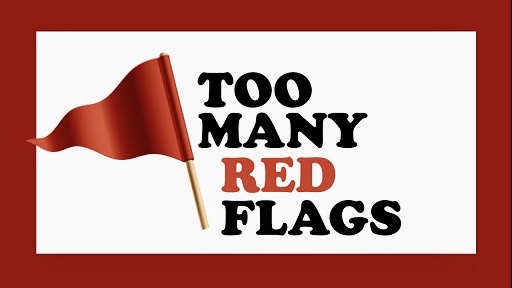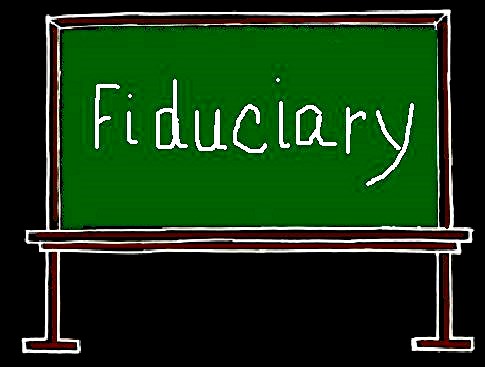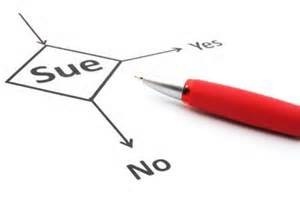Trevor Todd of Vancouver BC has 50 years experience in detecting and successfully suing to set aside fraudulent transactions due to the exercise of undue influence by a predator upon a victim.
A good place to start when understanding the law of undue influence are situation and things that might appear to be “suspicious”.
The doctrine of suspicious circumstances may arise in circumstances in which the background concerning the making of a will gives rise or should give rise to some suspicion.
The doctrine is intended to ensure that there is no doubt that the making of the will was the free and voluntary act of the testator.
A seemingly in exhaustive list of the innumerable circumstances which might be suspicious includes the following:
(a) where a gift is made to a person with whom the testator had a close relationship but which was not known or recognized by the testator’s family;
(b) where a gift is made to a person who is in a position to influence the testator, such as a caregiver or, the worst example, the party preparing the will;
(c) where an apparently unwarranted, undeserving or unpopular gift is made to a beneficiary who, in the minds of the those left behind, should not receive the gift;
(d) where a gift is made to a beneficiary to whom the testator has had no close relationship, such as a charity;
(e) where the division of assets among the children of the testator is substantially unequal, or a certain child or children are harshly treated;
(f) where the will substantially deviates from previous wills;
(g) where a gift is made to a person standing in a fiduciary relationship;
(h) where the beneficiary accompanies the testator on each trip to the will-drafter’s office during the process to complete the will;
(i) where the will-drafter receives the testator’s instructions from someone other than the testator;
(j) where the testator has had a recent serious illness or hospitalization;
(k) where there is any question about the testator’s testamentary capacity;
(l) where there are indications that the testator abuses alcohol or uses medications that are potentially mind-altering;
(m) where there testator has entered into a hasty or unwise marriage or common-law relationship;
(n) where there is evidence that the testator is depressed;
(o) where there is a language/cultural disability or illiteracy on the testator’s part;
(p) where the situation fits the “recent widower and the young woman to inherit everything” scenario.
How to Identify Undue Influence
1. Explore whether will-maker is in a relationship of dependency, domination or special confidence or trust.
Sample questions to consider:
• Do you live alone? With family? A caregiver? A friend?
• Has anything changed in your living arrangements recently?
• Are you able to go wherever and whenever you wish?
• Does anyone help you more than others? Who arranged/suggested this meeting?
• Does anyone help you make decisions? Who does your banking?
• Has anyone asked you for money? A gift?
2. Explore whether will-maker is a victim of abuse or neglect in other contexts.
Sample questions to consider (note need for tact, discretion and awareness for client’s physical safety; refer to community resources if and when appropriate):
• Has anyone ever hurt you? Has anyone taken anything that was yours without asking?
• Has anyone scolded or threatened you? Are you alone a lot?
• Has anyone ever failed to help you take care of yourself when you needed help?
• Are there people you like to see? Have you seen these people or done things recently with them?
• Has anyone ever threatened to take you out of your home and put you in a care facility?
3. Obtain relevant information from third parties when possible and if the will-maker consents.
4. Obtain medical assessment if mental capacity is also in question, but remember that mental capacity to make a will is ultimately a legal test.
5. Compile list of events or circumstances indicating undue influence.
Red Flags to Watch For
This list is not necessarily complete or definitive. It is an aid to practitioners to identify potential undue influence and provide an “index of suspicion” so that they will be alerted to carry out the necessary inquiries before preparing a will for execution.
(a) Will-maker invests significant trust and confidence in a person who is a beneficiary or is connected to a beneficiary (e.g. lawyer, doctor, clergy, financial advisor, accountant, formal or informal caregiver, new “suitor” or partner).
(b) Isolation of will-maker resulting in dependence on another for physical, emotional, financial or other needs.
(c) Physical, psychological and behavioural characteristics of will-maker.
Examples:
• Dependence on beneficiary for sight, hearing, mobility, speech, illness, illiteracy.
• Signs of neglect/self-neglect (emaciation, inappropriate clothing, bruising, untreated injuries).
• In state of shock after stressful situation (e.g. bad news, death of close person).
(d) Non-specific factors (e.g. loneliness, sexual bargaining, end-of-life issues).
(e) Cultural influences/conditioned responses (e.g. subservience to traditional authority in extended family; yielding to pressure for fear of revealing family conflicts leading to loss of face in community).
(f) Impaired mental function from a psychiatric condition or a non-psychiatric cause (e.g. trauma or stroke).
Examples:
• Sudden onset of confusion.
• Short term memory problems, disorientation, difficulty with finances.
• Signs of depression (e.g. irritable, agitated, difficulty making decisions, sad face, bowed head, general lethargy).
• Delusions.
• Extreme sense of well-being, continuous speech, inability to concentrate, poor judgment.
• Apprehensive or appearance of being worried, distressed, overwhelmed.
• Client is intoxicated/signs of substance abuse.
• Down’s syndrome, autism or other developmental disorder.
• Inability to answer open-ended questions.
(g) Circumstances related to making of the will and/or the terms.
Examples:
• Unusual gifts; sudden change for no apparent reason; frequent changes.
• Marked change in instructions from prior wills.
• 3rd party initiates instructions which also benefit 3rd party; beneficiary speaks for will-maker; beneficiary offers to pay for new will; will-maker relies exclusively/unusually on notes to give instructions.
• Spouses: joint retainer but one spouse provides instructions while other remains silent.
• Recent death of a family member and other family appear to influence changing existing will.
(h) Characteristics of influencer in will-maker’s family or circle of acquaintance.
Examples:
• Overly helpful.
• Insists on being present during interview with practitioner.
• Contacts practitioner persistently after instructions are taken.
• Person is known to practitioner to have history of abuse, including violence.
• Practitioner observes negative and/or controlling attitude to will-maker.
• Practitioner is aware that influencer is in difficult financial circumstances and/or engages in substance abuse.
(i) Practitioner’s “gut feeling”.
Examples:
• Body language of will-maker indicates fear, anxiety, insecurity, embarrassment, etc.
• “Influencer” is off-putting or difficult to deal with at appointment.
• “Influencer” is rude to staff in office or on telephone, or is overly solicitous.



